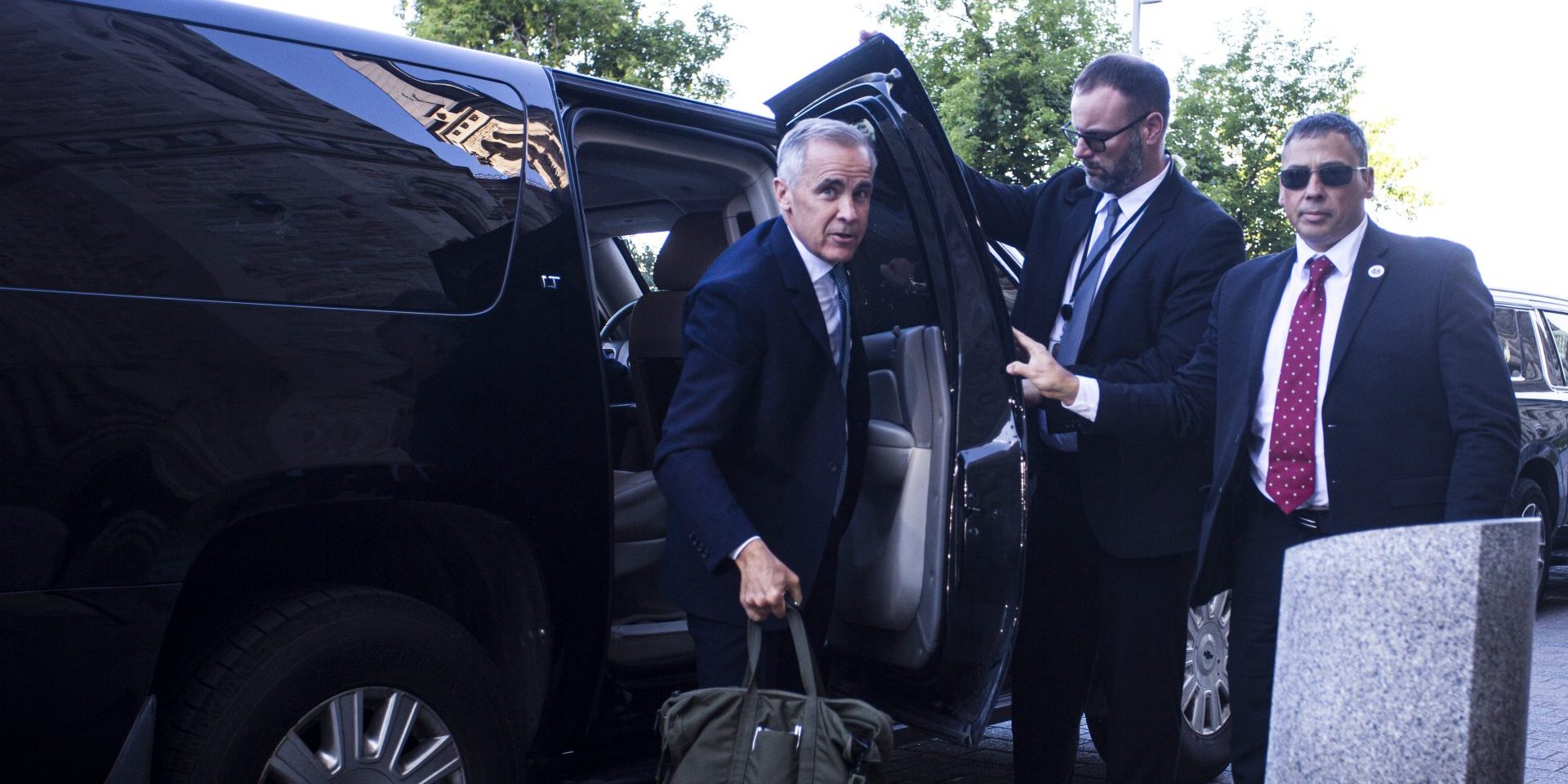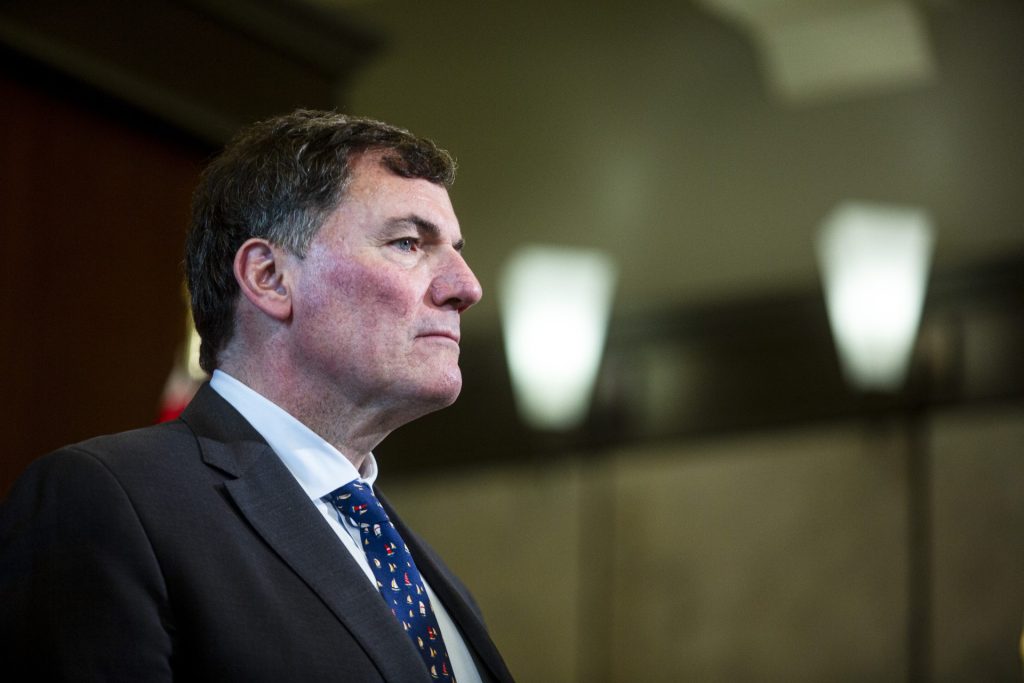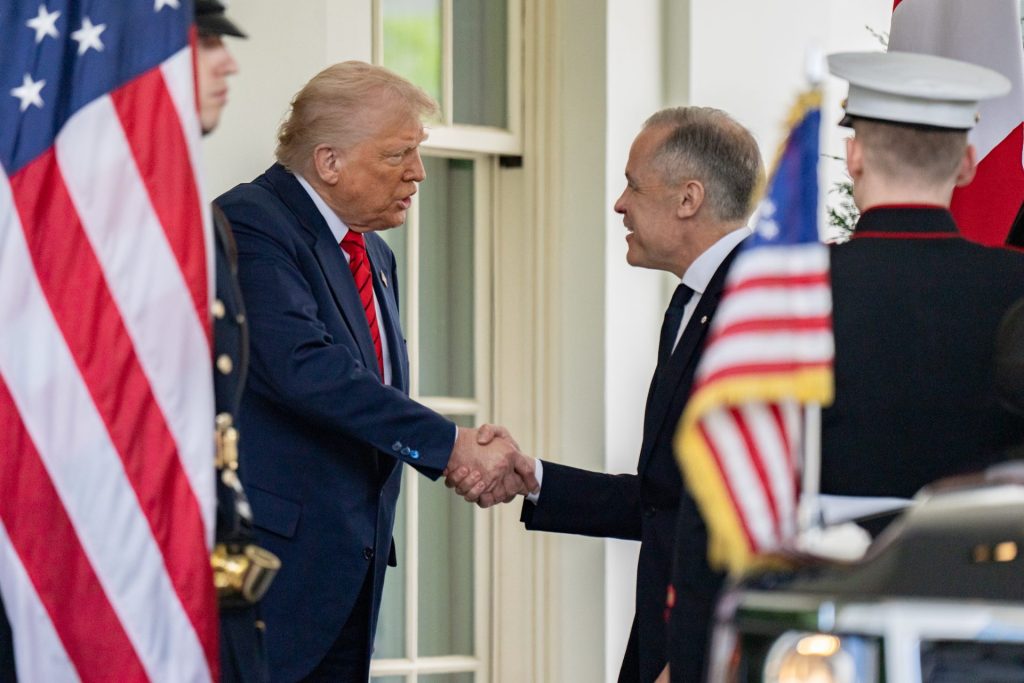August deadline could force Canada to sign a deal before courts rule on legality of Trump’s fentanyl tariffs

With the clock ticking down to an Aug. 1 deadline for a potential Canada-United States trade agreement, there’s a chance a deal could come ahead of a U.S. judicial ruling on the legality of the Trump administration’s emergency tariffs—a ruling some observers say could give Canada some negotiating leverage.
Last May, the U.S. Court of International Trade ruled that U.S. President Donald Trump’s International Emergency Economic Powers Act (IEEPA) tariffs were unconstitutional as it found that the national security provisions didn’t pave the way for “unlimited tariff authority.”
Oral arguments at the U.S. Court of Appeals for the Federal Circuit are scheduled for July 31.
A 25-per-cent IEEPA tariff was placed on Canadian goods—and 10 per cent for energy and potash—under the guise of addressing fentanyl and migrant crises. The Act was also employed to facilitate Trump’s April 2 so-called “reciprocal” tariffs. Goods are exempt from the tariffs on Canada if they are compliant with the Canada-U.S.-Mexico Agreement (CUSMA).
At the G7 Leaders’ Summit in June, an initial deadline for completing talks was set for July 21. But in a July 10 letter to Prime Minister Mark Carney (Nepean, Ont.), Trump set a new deadline for Aug. 1, and announced that the tariffs would jump to 35 per cent. It has been reported the tariffs would continue to only apply to goods that are not CUSMA compliant.
International trade lawyer Robert Glasgow, a McCarthy Tétrault partner, said there are benefits and disadvantages to both waiting to sign a deal and getting one done by the deadline.
“It’s difficult to say for sure where the court’s going to go,” he said. “If the Federal Court of Appeal ends up going with a determination that IEEPA tariffs are illegal, then that gives you a massive leg up in negotiating leverage … the major tariffs against Canada outside of steel and autos just kind of disappear.”

Glasgow noted that despite the current situation, Canada already has a leg up on other countries since the IEEPA tariffs are not targeting goods that are CUSMA compliant.
There hasn’t been clear accounting over how much of Canada’s exports to the U.S. fall under the North American trade pact, but analysts told The Hill Times that estimates are likely in the 60-80 per cent range.
Glasgow said that if the IEEPA tariffs are ruled to be illegal, it is likely that Trump would pivot to another tariff regime to advance his trade policy.
“One way or another, we have to plan for trade being tariffed in the long term,” Glasgow said.
He said he anticipates Canada and the U.S. reaching some form of trade pact by the deadline, adding that it won’t be a comprehensive trade agreement, but one that lowers tariffs and provides sectoral relief.
Carney has indicated that some levels of tariffs will be present in whatever agreement is reached with the U.S., telling reporters last week that “there’s not a lot of evidence right now” that the Trump administration would conclude a pact without tariffs in place.
Glasgow said that achieving “some sort of deal” is a positive given the importance of having preferential access to the American market, but it won’t alleviate concerns over continued trade threats.
“You can trust Trump as far as you can throw him, and I don’t think I can throw him very far,” he said. “At the same time, he has certain patterns and one of them is that—as we’ve seen in his letters with Vietnam and the like—is that he likes announcing deals and being seen to have closed deals.”
He said even if Trump can’t be trusted to adhere to any agreement in the long term, it would offer short-term protection where Canada can advance its work on diversification.
The case for waiting
Carlo Dade, director of international policy at the University of Calgary’s School of Public Policy, told The Hill Times earlier this month that Canada shouldn’t be signing up for a global tariff in the negotiations when it has the potential to be removed by the American judiciary.
“If the administration is trying to get deals done by August and the start of the appeal hearing is coming in July, do you want to rush to agree to tariffs that have already been declared illegal and unconstitutional and have ended, but that end has been put on hold [during the appeal]?” he said.
He added that it makes little sense to offer concessions to a Trump administration that has broken trade agreements it previously negotiated during its first iteration, such as CUSMA side letters and a 2019 pact on steel and aluminum tariffs.

Dade said the only good negotiation outcome is getting an exemption from the tariffs.
“If [Trump’s] favourite and easiest tool for imposing tariffs is constrained and the current fentanyl and across-the-board tariffs are about to be revoked, then it’s a whole new ball game and Canada needs to change its negotiating objectives and strategy,” Dade wrote in a July 10 Globe and Mail op-ed.
International trade lawyer Lawrence Herman said that rushing into a deal with an “artificial deadline may not be the most prudent thing to do.”
He said that an approach could be to delay signing a deal that would amount to a “handshake” with Trump and lack “any real binding force in international law.”
A group of U.S. Senators—three Democrats and a Republican—were in Ottawa on July 21 to discuss the state of trade with Canada.
According to the Prime Minister’s Office, chief of staff Marc-André Blanchard joined senior officials last week in Washington, D.C., to “advance negotiations,” and Canada-U.S. Trade Minister Dominic LeBlanc (Beauséjour, N.B.) will head south of the border this week.
Court likely to be deferential to Trump: lawyer
International trade lawyer Mark Warner, who practices in both the U.S. and Canada, said the appeals court is unlikely to rule in a way that would favour Canada.
“The bottom line is American courts tend to be deferential to claims of presidential authority when presidents use their Article 2 inherent powers over things like national emergencies and national security,” he said.
“As these cases go up the system, you’re going to courts in any generation [or] iteration since World War Two [that] are likely to be deferring to the president,” he said.
Warner added that a court ruling to overturn the trafficking tariffs could end up being questioned more than its judgment on the “reciprocal” tariffs.

The Court of International Trade ruled that those tariffs applied with the rationale of mitigating fentanyl didn’t meet the test of “deal[ing] with an unusual and extraordinary threat.”
Warner said that is unlikely to survive the upcoming appeals process.
“Unfortunately for Canada, the one part of the case that I think is most likely not to be affirmed on appeal is the part that most directly applies to Canada and Mexico—the trafficking tariffs.”
Warner said Canada’s strategy should be to strike a deal in the short term and not to wait out the legal cases, remarking that doing so could invite American retaliation.
“I don’t think Canada would want to be the lead jurisdiction standing up to the man,” he said, remarking that it may play well for a domestic audience, but it would be a “disastrous strategy” given the size of the Canadian economy compared to that of its southern neighbour.
Trade consultant Eric Miller, president of the Rideau Potomac Strategy Group, said he anticipates the courts “won’t save free trade,” remarking that the U.S. Supreme Court has been willing to allow for the expansion of presidential authority.
He said it is an “awfully big risk” to hope that a court decision will fall in Canada’s favour, and the threat will dissipate.
“Even if the IEEPA process was ruled illegal at the highest levels, then Donald Trump [could] start a very broad Section 232 [tariff] problem and put tariffs on that way,” he said.
Miller said many people are hoping to see a potential agreement to put the situation in the rearview mirror.
With open questions about the CUSMA review that is scheduled to occur in 2026, Canada is looking to move quickly to have increased clarity and certainty in the North American trading relationship, he said.
“But the challenge with Donald Trump is that Donald Trump is perfectly willing to open an agreement that he has made,” he said.
nmoss@hilltimes.com
The Hill Times






 LICENSING
LICENSING PODCAST
PODCAST ALERTS
ALERTS













